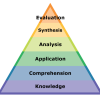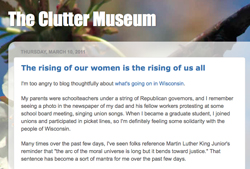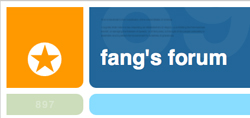I.
For twenty-five years, I have been treated for asthma. I’ve lost count of the inhalers, nebulizers, prednisone, and various other pills I’ve tried.
None of them worked. I wheeze all the time. Perfume, scented products, hairspray, smoke, and air pollution trigger attacks. On multiple occasions, I’ve landed in the emergency room with chest pain and breathing issues. At one urgent care visit this spring, I was prescribed prednisone, which led to a long night of vomiting and dehydration, and then yet another trip to the ER.
All of my adult life, my health and fitness narrative has centered around the limitations imposed by uncontrolled asthma.
That story is wildly inaccurate.
II.
If you’ve met me in person in the past 15 or so years, you may have found me disarmingly, and perhaps even hilariously, transparent. In conjunction with deep listening, it’s my strategy for connecting with people, making them laugh by revealing bits of the “real” me—and thereby, I hope, putting them at ease.
In fact, there’s very little space between the person I present to the world and my authentic self. And yet, although I’m extroverted and talkative among people, I’ve become much more circumspect about what I write.
Some of this caginess emerges from my day-to-day work as director of a campus unit that sits at the intersection of academic technology and faculty development. That kind of work requires a good deal of authenticity, yes—but also tact, persuasion, and political savvy. I need to work with faculty and staff from across the university; I dread having something I wrote be misinterpreted and lead to tension or misunderstanding.
Sometimes I convince myself I don’t have anything useful to say; I tell myself everything has already been said, or I let myself succumb to impostor syndrome. There are so many brilliant historians and insightful academic technologists—what can I contribute?
And then—I suspect like most humans—there are things I’d like to say but can’t. It’s not that I have a dark hoard of secrets. It’s simply that I don’t want to hurt anyone or injure friendships by speaking or writing with imprecision.
Sometimes I can’t put these things in writing, lest they be stumbled across. But these days I can’t even speak them aloud when I’m alone. At such moments, thoughts catch in my throat—literally.
III.
You see, in recent months, I’ve become aware of a tightness in my neck, a painful constriction of my throat. My larynx feels swollen shut, and sometimes I have difficulty getting words out. My voice can get downright gravelly; I’m hoarse for at least part of every day.
I’ve always been a terrible singer—I’m probably tone deaf—but I used to enjoy singing when I’m alone. That’s not the case now. My current vocal range is approximately half an octave. I can’t sing “Happy Birthday.”
IV.
My son’s Taekwondo studio teaches its students their voices are their most powerful weapon.
It was at the studio, during a game to see whether parents or kids could demonstrate greater enthusiasm through achieving greater volume, that I realized I had lost control of that weapon, that most important tool.
I could no longer shout.
V.
Late this spring, after a quarter-century of medical professionals not asking quite the right questions about my wheezing, my current doctor asked, “What if it isn’t asthma?”
VI.
My new asthma and allergy specialist tells me that in the early 1980s, at National Jewish Hospital in Denver, a multidisciplinary team of medical professionals brought together a group of patients whose asthma didn’t respond to treatment.
They named, and crafted a treatment regimen for, the condition they discovered these patients shared: vocal cord dysfunction (VCD). (Other things VCD patients were likely to have in common: depression and anxiety.)
My specialist happens to have done his residency at National Jewish.
VII.
In a few weeks, I’ll see a speech therapist who specializes in getting stubbornly closed vocal cords to unclench. Meanwhile, I’m hyper aware of my inspiratory wheeze, how difficult it can be to begin talking, how awful I sound when I attempt to sing along with even the simplest songs playing on the car stereo.
VIII.
Many times on this blog, I’ve deployed metaphors to illustrate some of my (mostly mild) existential angst. At first, I thought my VCD was a perfect, if almost too literal, allegory for my inability to blog, and for the glacial pace of my scholarly writing the past few years.
But the VCD isn’t metaphorical. I refine my ideas through conversation, and conversation has come to be painful. It wears down my (literal) voice. A limited physical voice has led to a similarly constricted writing practice.
IX.
Through talk therapy, meditative walking and gardening, and reading, I try to demystify the cause-and-effect of my depression. As in my throat, I find a constricted tangle. I’m grateful I’m an exceptionally high-functioning depressive, though I confess the effort that takes can be exhausting and painful.
Writing has always eased that effort. And just as I now know the cause of 25 years of physical suffering and have committed to pursuing therapy for it, I’m recommitting to my writing practice. There’s a practical aspect of this, yes—I need to be assembling a portfolio of meaningful scholarship so I can apply for full professor in a few years. But I’ve always found writing restorative and cathartic; it’s a way to blow the gunk out of my mind and clarify ideas.
I’m calendaring defensively to ensure I have time to write at work and at home. I’ve set up my home office to be more conducive to writing. I’m reading more poetry. I’ve set deadlines for myself.
I’m doing all the things I can do ensure I use my voice, and use it well. Expect to see more of my writing, then, here and elsewhere.


